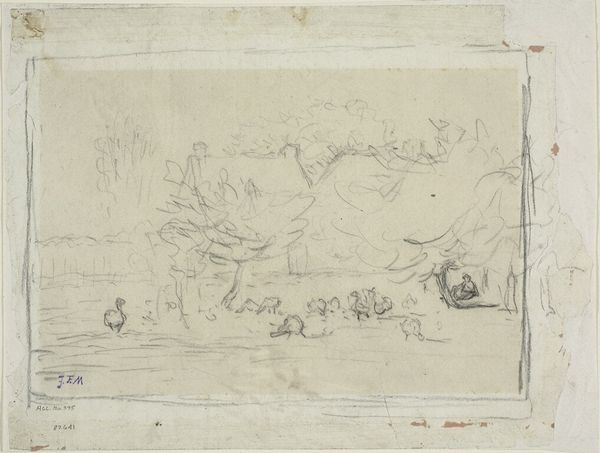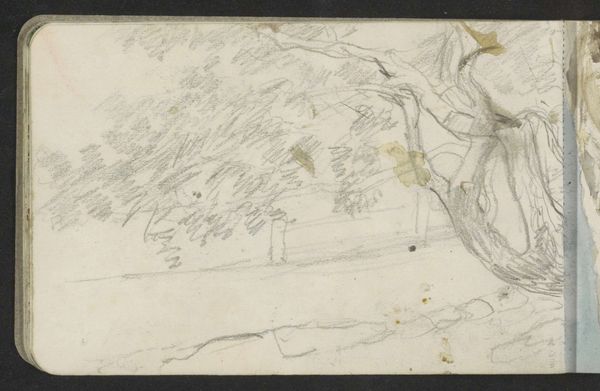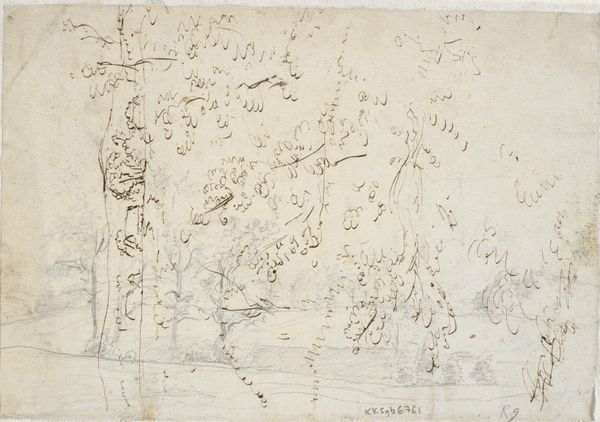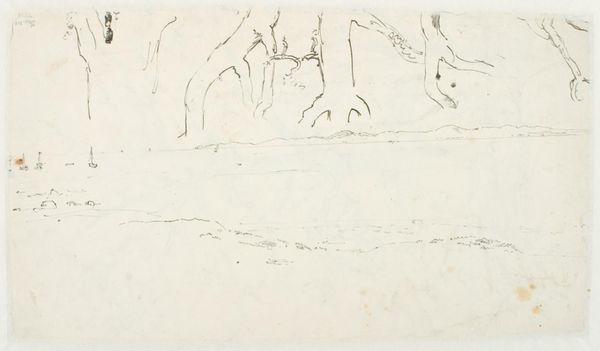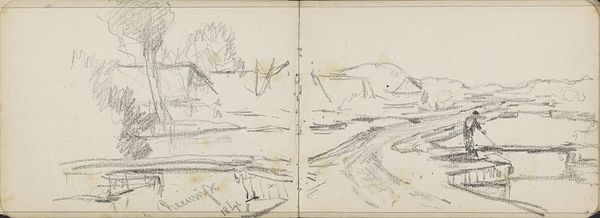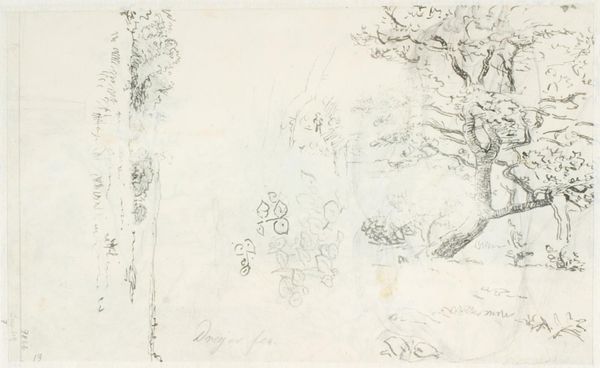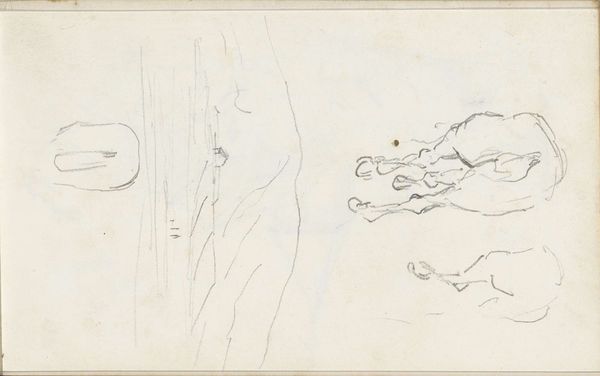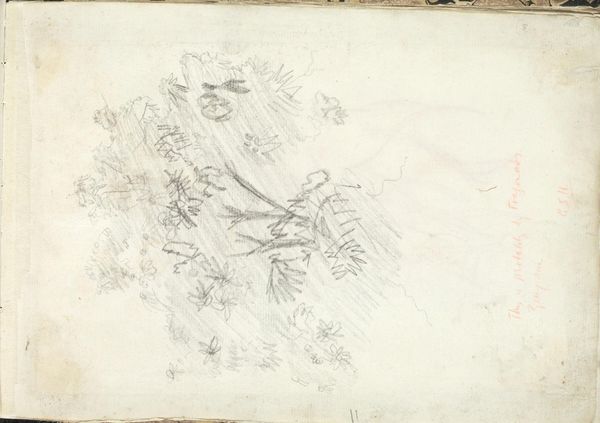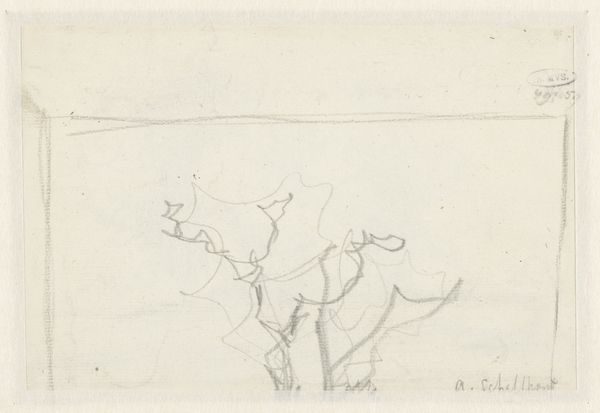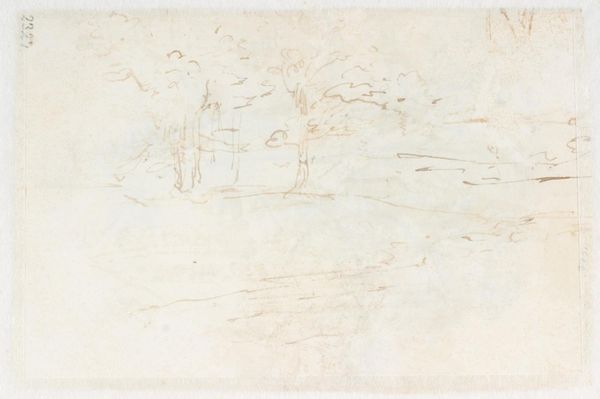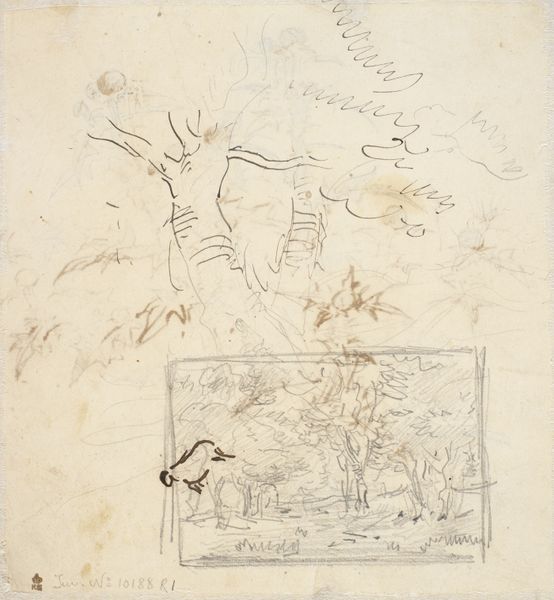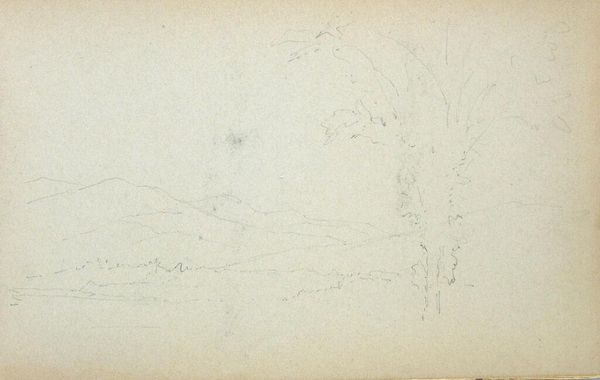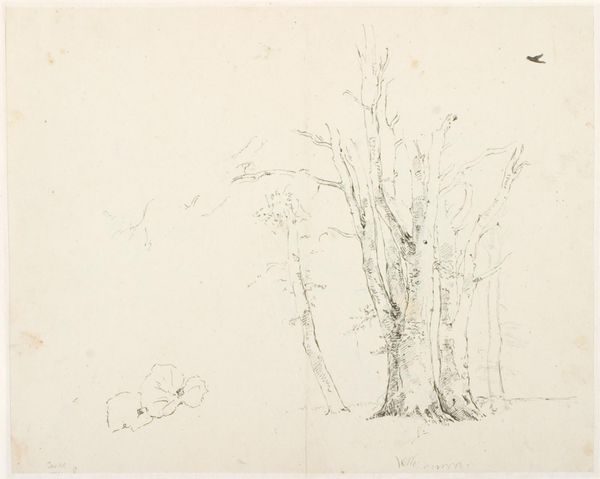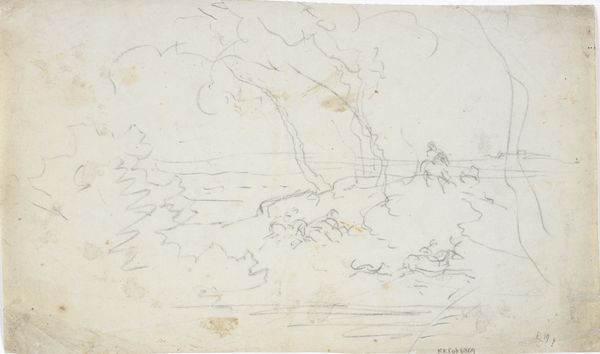
drawing, plein-air, watercolor, ink
#
drawing
#
plein-air
#
landscape
#
watercolor
#
ink
#
romanticism
#
watercolor
Dimensions: 156 mm (height) x 336 mm (width) (bladmaal)
Editor: This is Dankvart Dreyer’s, *Studier af et landskab med kæmpehøje og af planter,* dating from the 1840s, rendered in ink and watercolor. It strikes me as rather peaceful. What do you see in this piece, Professor? Curator: I see a direct engagement with Romanticism’s relationship to landscape, but not without some interesting tension. Consider Dreyer’s choice to pair imposing, somewhat crudely drawn megaliths with delicate floral studies. Does this contrast echo broader societal shifts? The burgeoning national romanticism seeking grounding in ancient histories alongside emerging scientific methods, perhaps? What do you think about the human figure dwarfed by the landscape and positioned near the stones? Editor: I hadn’t considered that connection to scientific pursuit, actually. To me, the figure seems like a visual shorthand for humanity’s fleeting existence compared to nature’s permanence. Is that too simplistic of a read? Curator: Not necessarily, but let’s complicate it further. What’s the power dynamic at play here? Who gets to represent that “fleeting existence”? Remember, 1840s Denmark was steeped in its own sociopolitical dramas, and the rural landscape held loaded meanings. Are we really talking about nature, or are we talking about land, ownership, and the peasantry? The drawing being a "study" reinforces the artifice involved. Editor: That definitely casts a different light on the scene. Now I'm wondering who the art was created for? To what extent it speaks for and to different communities from then to today. Thank you for sharing this, Professor! Curator: My pleasure. Art provides a lens through which we might investigate these layered relations.
Comments
No comments
Be the first to comment and join the conversation on the ultimate creative platform.
